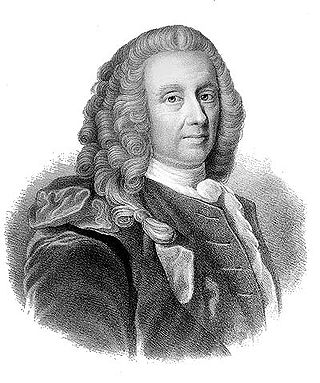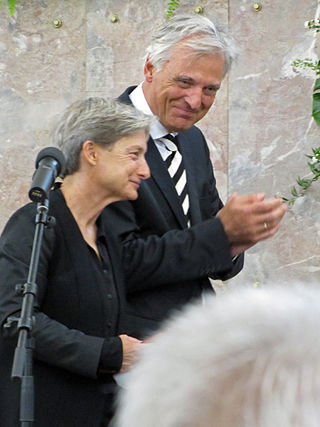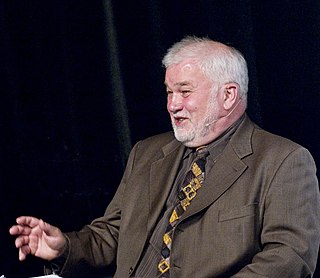Related Research Articles

Jürgen Habermas is a German philosopher and social theorist in the tradition of critical theory and pragmatism. His work addresses communicative rationality and the public sphere.

Ludvig Holberg, Baron of Holberg was a writer, essayist, philosopher, historian and playwright born in Bergen, Norway, during the time of the Dano–Norwegian dual monarchy. He was influenced by Humanism, the Enlightenment and the Baroque. Holberg is considered the founder of modern Danish and Norwegian literature. He was also a prominent Neo-Latin author, known across Europe for his writing. He is best known for the comedies he wrote in 1722–1723 for the Lille Grønnegade Theatre in Copenhagen. Holberg's works about natural and common law were widely read by many Danish law students over two hundred years, from 1736 to 1936.

Ronald Myles Dworkin was an American legal philosopher, jurist, and scholar of United States constitutional law. At the time of his death, he was Frank Henry Sommer Professor of Law and Philosophy at New York University and Professor of Jurisprudence at University College London. Dworkin had taught previously at Yale Law School and the University of Oxford, where he was the Professor of Jurisprudence, successor to philosopher H. L. A. Hart.

Axel Honneth is a German philosopher who is the Professor for Social Philosophy at Goethe University Frankfurt and the Jack B. Weinstein Professor of the Humanities in the department of philosophy at Columbia University. He was also director of the Institut für Sozialforschung in Frankfurt am Main, Germany between 2001 and 2018.

The Theodor W. Adorno Award(Theodor-W.-Adorno-Preis) is a German award intended to recognize outstanding achievement in philosophy, theatre, music and film. It was established by the city of Frankfurt in 1977 to commemorate the sociologist and philosopher Theodor Adorno, who had taught at the University of Frankfurt for twenty years. The award is conferred every three years on 11 September, Adorno's birthday. The prize money is 50,000 Euro.

TheHolberg Prize is an international prize awarded annually by the government of Norway to outstanding scholars for work in the arts, humanities, social sciences, law and theology, either within one of these fields or through interdisciplinary work. The prize is named after the Danish-Norwegian writer and academic Ludvig Holberg (1684–1754). The Holberg Prize comes with a monetary award of 6 million Norwegian kroner (NOK), which are intended to be used to further the research of the recipient. The winner of the Holberg Prize is announced in March, and the award ceremony takes place every June in Bergen, Norway.
Giovanna Borradori is Professor of Philosophy and Media Studies at Vassar College. Borradori is a specialist in Social and political theory, Aesthetics, and the philosophy of terrorism. A crucial focus of her work is fostering new avenues of communication between rival philosophical lineages, including the analytical and Continental traditions, liberalism and communitarianism, as well as deconstruction and Critical Theory.

Jürgen Kocka is a German historian.

Andrei Marga is a Romanian philosopher, political scientist, and politician. Rector – for the second time – of the Babeș-Bolyai University in Cluj-Napoca, he was a member of the Christian Democratic National Peasants' Party (PNŢCD), serving as Minister of Education in the Democratic Convention (CDR) coalition governments of Victor Ciorbea, Radu Vasile, and Mugur Isărescu (1997–2000). In January 2001, he replaced Ion Diaconescu as PNŢCD president, but resigned from this position in July 2001, amid political tensions within the party. He subsequently formed a new political party, more specifically the Popular Christian Party later during the same year. Later on, he became a member of the National Liberal Party (PNL).
Lutz Wingert is a German philosopher who is sometimes identified as one of the "Third Generation" of the Frankfurt School of philosophy. He is a professor of philosophy focusing on practical philosophy at the Swiss Federal Institute of Technology Zurich and a member of the Zentrum Geschichte des Wissens. He is a former student of, and a co-author with, Jürgen Habermas, a founding member of the Frankfurt School. Wingert is a former chair of practical philosophy at the University of Dortmund. Along with Wilfried Hinsch, he edits the Ideen & Argumente series.

Knowledge and Human Interests is a 1968 book by the German philosopher Jürgen Habermas, in which the author discusses the development of the modern natural and human sciences. He criticizes Sigmund Freud, arguing that psychoanalysis is a branch of the humanities rather than a science, and provides a critique of the philosopher Friedrich Nietzsche.
1981 in philosophy
Peter Eli Gordon is an American historian of philosophy, a critical theorist, and intellectual historian. The Amabel B. James Professor of History at Harvard University, Gordon focuses on continental philosophy and modern German and French thought, with particular emphasis on the German philosophers Theodor Adorno and Martin Heidegger, critical theory, continental philosophy during the interwar crisis, and most recently, secularization and social thought in the 20th century.

The Sigmund Freud Prize or Sigmund Freud Prize for Academic Prose is a German literary award named after Sigmund Freud and awarded by the Deutsche Akademie für Sprache und Dichtung. It was first awarded in 1964.
Odo Marquard was a German philosopher. He was a professor of philosophy at the University of Giessen from 1965 to 1993. In 1984 he received the Sigmund Freud Prize for Scientific Prose.
1996 in philosophy
1985 in philosophy
1988 in philosophy

A critical theory is any approach to humanities and social philosophy that focuses on society and culture to attempt to reveal, critique, and challenge power structures. With roots in sociology and literary criticism, it argues that social problems stem more from social structures and cultural assumptions than from individuals. Some hold it to be an ideology, others argue that ideology is the principal obstacle to human liberation. Critical theory finds applications in various fields of study, including psychoanalysis, film theory, literary theory, cultural studies, history, communication theory, philosophy, and feminist theory.
Omid A. Payrow Shabani (1962-2023) was an Iranian philosopher and Professor of Philosophy at the University of Guelph. Payrow Shabani was known for his expertise on constitutional patriotism, Iranian politics and Jürgen Habermas's philosophy. He was awarded an Andrew Mellon Postdoctoral Fellowship in 2002.
References
- ↑ "Jürgen Habermas". Inamori Foundation. Archived from the original on 23 May 2013. Retrieved 12 January 2013.
- ↑ "Holberg International Memorial Prize". holbergprisen.no. Retrieved 2 April 2013.